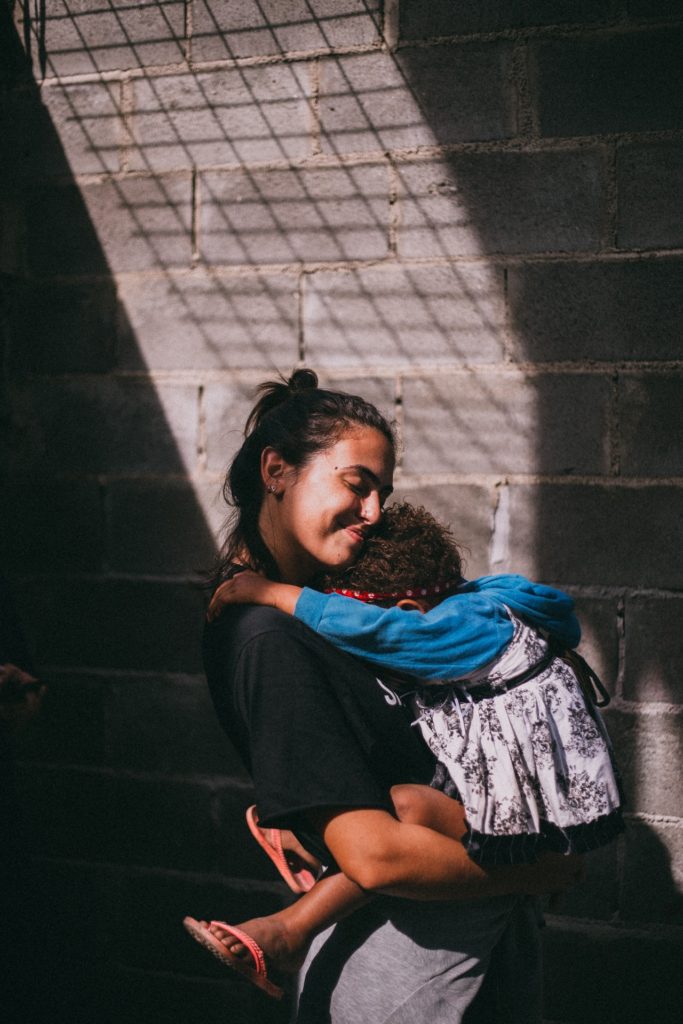A short disclaimer before we talk about support during meltdowns: this is not one size fits all! So, while the principles of this post will be essentially the same, the strategies will look different for a caregiver in the grocery store, or how a friend may support a roommate at home. I think this can be applicable to autistic individuals, those with sensory processing differences (like sensitivity and avoiding), ADHD, and anxiety.



First, to talk about support, let’s look at the differences between meltdowns and tantrums.
This doesn’t mean that we never provide demands or requests. It just means that we may approach sensory overwhelm differently, with different strategies in mind.
Meltdowns vs. Tantrums
A meltdown can be caused by being overstimulated or overwhelmed, triggering a fight, flight, or freeze response. It’s not something the individual can simply “get over” or “deal with”. (If you’ve ever heard of someone delaying a meltdown or waiting until they get home, that means they are likely masking until they get in a safe space. Not everyone can do this.) For kids and teens, the unsuspecting eye may think meltdowns look like tantrums, especially if the “straw that breaks the camel’s back” is a demand.
Let’s say that a caregiver tells a child to put on their shoes before they go outside, or a parent asks their teenager to wash the dishes after school. These demands may seem like a small request, and really non-negotiable in some instances. However, for someone with sensory sensitivities or executive function difficulties, it can be the last straw. A child may be already overstimulated and cannot deal with processing the seams on their socks, even if it means they get to go outside. Suddenly, they lose access to words and can only express, “NO!”
A teenager coming home from school may have been masking all day. They are dealing loud noises and filtering out what information is important and are absolutely exhausted. So, an instance that looks like a dramatic version of teenage angst, may have more to the story.
This doesn’t mean that we never provide demands or requests. It just means that we may approach sensory overwhelm differently, with different strategies in mind.
Support During Meltdowns

Some strategies to avoid meltdowns:
- Placing additional demands on the individual, including asking questions.
- Telling an individual what to say in order to obtain support or demanding that they explain exactly what’s wrong in the moment.
- Telling the individual to “calm down” or what it “isn’t a big deal.” (even if it wasn’t a big deal the day before, sensory needs change).
- Declining an individual’s request for space, when they are safe and in safe area.
Strategies to use for support during & after meltdowns:
- Ensuring safety or moving to a safe area
- Reduce sensory stimulation by turning down lights or using natural lighting, closing doors, etc.
- Access to alternative communication & sensory supports (providing objects to squeeze and pull and release energy)
- Slowing down movements and lowering voice
- Using descriptive, but limited language (” I’m going to place your weighted blanket right here”)
- Having open body language and sitting with them through it
- Discussing triggers for sensory overwhelm in future and modeling sensory accommodations (ex. maybe next time we can bring your headphones on days we know you have a busy schedule)
You May Not Always Get It Perfect
Congratulations! You’ve learned fool-proof strategies!! Absolutely not. I have to tell you, it takes trial and error. Especially when finding the right sensory supports, because everyone’s sensory system is unique.
The most important piece is safety and co-regulation and seeking support and community when you’re having difficulty regulating yourself. Accommodations are not an excuse and providing adaptations and accommodations to get tasks done is not a cop-out. It’s a different lens on life, and that’s ok.
Thanks for reading.
Shine Bright!
Dr. Diamond

One thought on “Support During Meltdowns”